A Guide on 300 Most Common English Words Used in Daily Life
A Guide on 300 Most Common English Words Used in Daily Life
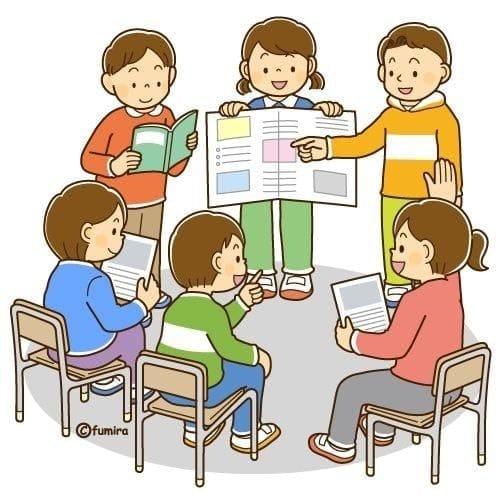
Introduction
Good, right English vocabulary words are the foundation for effective communication. Right English vocabulary words allow individuals to express themselves well, clearly put their thoughts across, and understand others more clearly. A good vocabulary boosts confidence, provides for meaningful conversations, and helps connect people from various contexts.
How Learning Common English Words Makes the Process Less Scary
Ease of Use: When learners learn to use common words in English, beginners can apply them right away in their daily conversations.
Fast Comprehension: It is easier to remember and use familiar words because they are often in context.
Progressive Learning: Starting with simple words lays a good foundation for gradually mastering more complex vocabulary.
Practical Tips to Build Vocabulary
Daily Practice: Spend a few minutes learning and using new words in sentences.
Flashcards and Apps: Use flashcards or mobile apps to make learning interactive and fun.
Contextual Learning: To enhance recall, associate new words with situations, visuals, or emotions.
Conversations: Hold regular conversations using the learned words to drive home their usage.
This systematic approach will allow beginners to confidently explore the world of English communication with ease and efficiency.
Why Learning Common English Words for Beginners is Essential
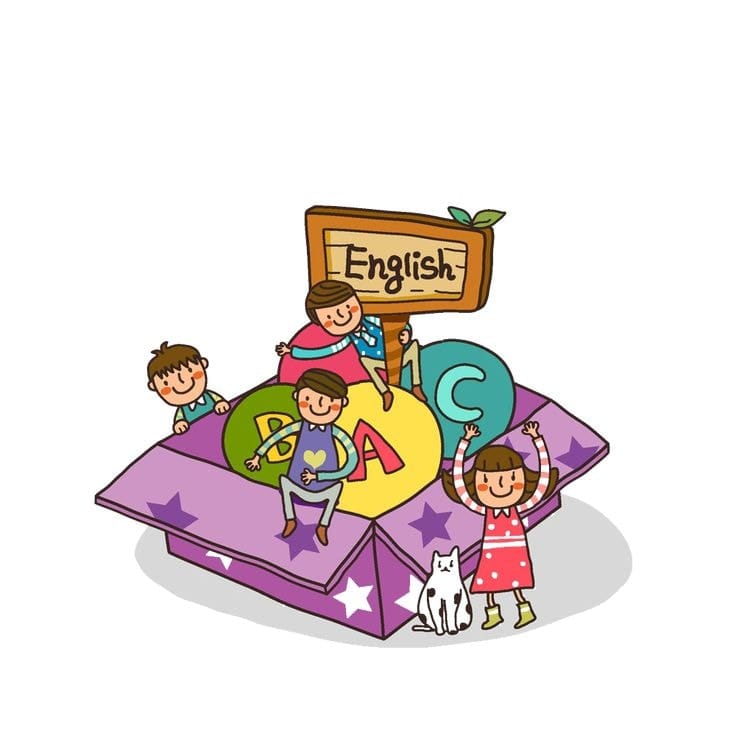
1. Building a Strong Language Foundation
Basic words are fundamental for learners as they help lay a foundation for basic and common words of english. Most commonly used English words in everyday conversation are helpful in daily communications. Examples of essential common words in everyday English conversations that help to build communication for everyday usage include words like hello, eat, water, and happy. These simple, everyday words in English give a beginner a tool for making basic, meaningful sentences. Such will be the first step to speaking English fluently. Beginning behaviour is essential to achieving mastery of the English language.
2. Communicative Competence
This understanding of everyday words makes language users communicate better without proper grammar. In the case of new students, they can talk to pass essential messages, for instance, asking directions, requesting food, or simply stating one's name. That they can easily talk out a simple thought enhances confidence and inspires them to continue learning a foreign language.
3. Expansion in Vocabularies
When the students become confident with essential words, they can relate them with other related words and phrases. For instance, understanding the word run helps one to understand related variations like runner, running, and running. The cumulative learning approach thus facilitates the fast acquisition of vocabulary. As a result, it becomes relatively more straightforward to reach intermediate and advanced levels.
English-speaking countries prefer people with a smart vocabulary so that they can communicate and contribute effectively.
4. Listening and Reading Comprehension Improves
Ordinary words occur often in ordinary talk, books, and the media. By being aware of those words, novice listeners quickly capture the meaning of what is spoken or written to them even when they don't know exactly what is going on. Improved comprehension thus generates familiarity with the language and provides the key to retention over the long haul and, eventually, fluency.
5. Laying the Groundwork for Advanced Skills
Common words are stepping stones to mastering advanced grammar, pronunciation, and writing skills. Learners establish a framework for building more complex language abilities, starting with these basics. For instance, understanding simple words helps when learning idioms, phrasal verbs, or subject-verb agreement.
300 Daily Use English Vocabulary With Meaning
Nowadays, vocabulary plays a significant role in communication and successful language learning. The words of daily use language are the building blocks of every conversation, making communicating easy and promoting good comprehension between persons speaking. Knowing these common words of English is very important for beginners or those improving their fluency. This 300-word list, complete with meanings, shall serve as a practical guide in enriching your daily vocabulary and gaining more confidence when speaking, reading, and writing English.
Let us learn by understanding common words in English with their meanings. The following words are used in everyday English conversations. Words help weave an interesting story, which becomes the medium of expression and an essential aid for having a meaningful conversation among friends and family and varied academic purposes for children.

A strong vocabulary is the foundation of effective communication and language proficiency. Daily use of words is essential as they form the core of most conversations and interactions. Learning and mastering these words helps express thoughts clearly and understand others effortlessly. This collection of 300 commonly used English words and their meanings is a practical guide for building a versatile vocabulary. Whether you're a beginner or looking to enhance your fluency, these words will boost your confidence in speaking, reading, and writing. By incorporating them into your daily practice, you'll be better equipped to communicate effectively in various situations, strengthening your English skills and more versatile.
All these words are a guide to have a great set of vocabulary:
Exactly: Precisely or accurately.
Examination: A detailed inspection or study; a test of knowledge or ability.
Examine: To inspect or study something carefully.
Example: A representative part or instance used to illustrate or explain.
Interesting: Holding or catching attention; engaging.
Internal: Existing or situated within something.
International: Involving two or more countries; global.
Internet: A global system of interconnected computer networks.
Evidence: Information or facts that support a belief or argument.
Evolution: The gradual development or change of something over time.
Evolve: To develop gradually, often into a more advanced state.
Exact: Fully correct or precise.
Completely: In every way; entirely.
Complex: Consisting of many connected parts; complicated.
Complicated: Difficult to understand due to multiple parts or elements.
Component: A part or element of a larger whole.
Prescription: A written order for medicine or treatment from a doctor.
Presence: The state of being present or existing in a place.
Present: Existing or occurring now; a gift; to show or offer.
Presentation: A display or demonstration of a topic or idea.
Position: A place, location, or stance; a job or role.
Positive: Optimistic, good, or confident; having a beneficial effect.
Possess: To own or have something.
Possibility: A chance that something may happen or be true.
Joint: A point where two parts are connected; shared by two or more people.
Joke: Something said or done to cause laughter.
Journal: A daily record of events or thoughts; a publication with articles.
Journalist: A person who writes for newspapers, magazines, or news outlets.
They: A pronoun referring to two or more people or things.
Thick: Having a large distance between opposite sides; dense.
Thin: Having a small distance between opposite sides; not thick.
Thing: An object, idea, or matter.
Dark: Lacking light; not bright or clear.
Darkness: The absence of light.
Data: Facts or information used for analysis or reference.
Date: A particular day; a romantic meeting; a type of fruit.
Teacher: A person who teaches or educates others.
Teaching: The act or profession of educating others.
Team: A group of people working together for a common purpose.
Breath: The air taken in or expelled from the lungs.
Breathe: To take air into the lungs and release it.
Brick: A rectangular block used in building structures.
Bridge: A structure built to span a gap and provide passage.
Awful: Very bad or unpleasant.
Baby: A very young child or infant.
Back: The rear part of something; to support; to return.
Background: The area or scenery behind the main subject; a person’s experience.
Independence: The state of being free from control or influence.
Independent: Free from external control; self-reliant.
Index: A list or guide, often alphabetized, in a book or database.
Indian: Relating to India or its people.
The list of the above words is essential for every student to learn because it will help them enhance their overall language. English is the dominant language all over the world and
Building Sentences with Common English Words
Building a sentence with some of the most common words is the basic act of developing English. Straightforward sentences allow students to express their thoughts correctly and provide confidence. Here, learn to make up sentences as follows:
Basic structure: Subject + Verb + Object
Subject: The subject is the doer of the action
For example, Codeyoung offers the best English language courses.
In the above example, Codeyoung is the subject.
Object: In a sentence, an OBJECT is the receiver of the action.
For example, Codeyoung provides special attention to the students.
In the above example, students are the sentence's object as they receive the action. the object of the sentence as they are receiving . changes made to text
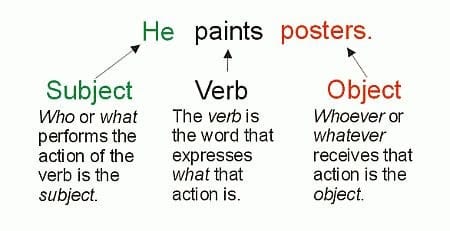
Incorporate everyday words into your sentences to make practice practical and relatable. For example:
"I need water."
"They are watching a movie."
"We live in a big city."
It's a daily practice that strengthens the vocabulary and improves your understanding of grammar rules like tenses, subject-verb agreement, and word order. In due course, you may expand to compound and complex sentences like these: "I went to the park, and I saw my friend." "Although it was raining, they played outside."
Practice makes perfect, and continuous practice constantly improves fluency and speech over time, making everyday conversation flow effortlessly. always results in improvement of, thereby . changes made to text
Popular English Words for Beginners and Their Usage in Sentences
Learning popular words used in daily life is crucial for beginners. Practice forming simple sentences to improve fluency.
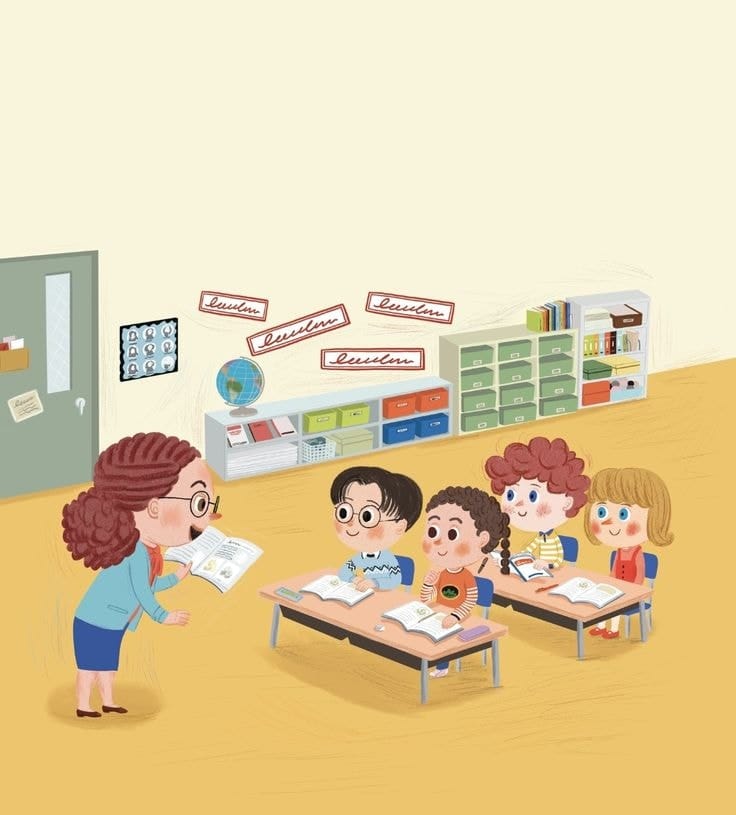
Examples:
Word: Happy | Sentence: "I am happy to see you."
Word: Eat | Sentence: "We eat dinner at 7 PM."
Word: Run | Sentence: "He runs every morning."
Using such words in sentences daily builds confidence and communication skills.
Additionally, these words will also help the child learn better words:
skin: The outer covering of the body.
sky: The atmosphere or expanse above the earth.
Slave: A person legally owned by another and forced to work.
Sleep: A state of rest during which the body recovers.
Preference: A greater liking for one option over others.
Pregnancy: The condition of carrying a developing fetus in the womb.
Pregnant: Having a baby developing inside the womb.
Preparation: The act of getting ready for something.
Homeless: Without a home or permanent place to live.
Honest: Truthful and trustworthy.
Honey: A sweet substance made by bees from nectar.
Honor: High respect or esteem.
Apartment: A set of rooms forming a residence.
Apparent: Clearly visible or understood; obvious.
Apparently: As far as one knows; seemingly.
Appeal: A request for help or support; to attract interest.
Bible: The holy book of Christianity.
Big: Large in size or importance.
Bike: A bicycle or motorcycle.
Bill: A written statement of charges or a proposed law.
Maintain: To keep something in good condition or continue something.
Maintenance: The act of keeping something in good condition.
Major: Very important; greater in size or importance.
Majority: The greater number or part of something.
Physical: Relating to the body or material things.
Physically: In a manner relating to the body.
Physician: A medical doctor.
Piano: A large musical instrument with a keyboard.
Huge: Extremely large or big.
Human: Relating to people; a person.
Humor: The quality of being funny or amusing.
Deep: Extending far below the surface.
Deeply: To a great depth or degree.
Deer: A graceful animal with antlers.
Defeat: To win against someone in a contest or conflict.
Myself: Referring to the speaker personally.
Mystery: Something that is not understood or explained.
Myth: A traditional story, often involving supernatural events.
Analysis: A detailed examination of something.
Analyst: A person who examines or studies something in detail.
Analyze: To examine something carefully in detail.
Ancient: Very old or from a long time ago.
Education: The process of learning or teaching.
Educational: Related to education.
Educator: A teacher or someone involved in education.
Effect: A result or impact of something.
Tips for Learning and Retaining English Vocabulary
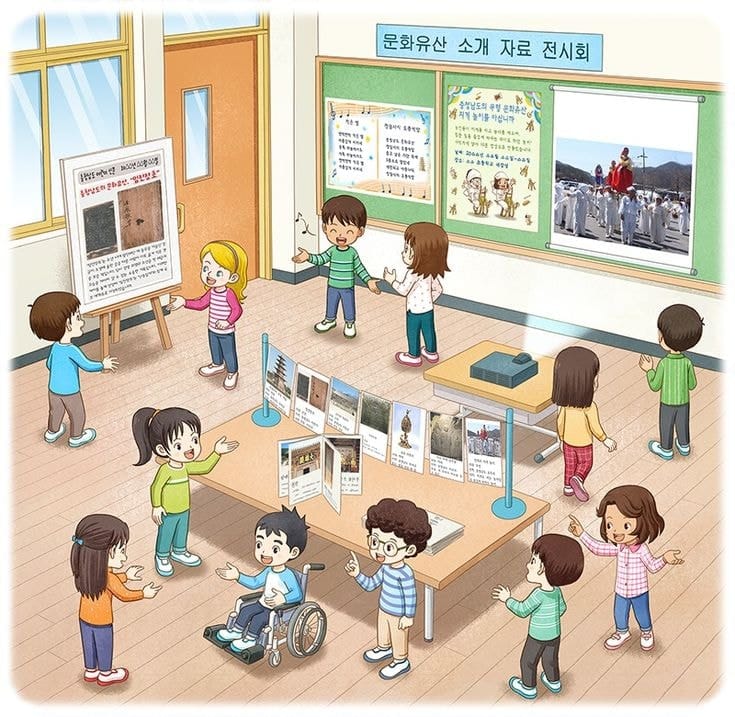
1. Flashcards and Spaced Repetition: Use flashcards to review vocabulary regularly. Apps like Anki or Quizlet help with spaced repetition, ensuring that words are reviewed at increasing intervals to boost retention.
2. Associating Words with Visuals or Actions:
Link new words to images or actions. For example, if learning the word "run," visualize someone running or performing the action yourself to create a strong mental connection.
3. Regular Practice and Revisiting:
Consistent practice is key to long-term retention. Revisit words weekly and try using them in conversations, writing, or even thinking in English to reinforce your memory.
Let us practice some more words:
Different: Not the same as another.
Differently: In a way that is not the same.
Difficult: Not easy; requiring effort.
Difficulty: A problem or struggle.
Working: Engaged in a job or activity.
Works: Things created or accomplished; tasks.
Workshop: A place for making or repairing things; a training session.
World: The earth and its inhabitants.
Answer: A response to a question.
Anticipate: To expect or prepare for something.
Anxiety: A feeling of worry or nervousness.
Shower: A device or act of washing with water; brief rain.
Shrug: To raise and lower shoulders, usually indicating indifference.
Shut: To close something.
Sick: Ill or unwell.
Disaster: A sudden event causing great harm or damage.
Discipline: Training to follow rules or improve skills.
Discourse: Written or spoken communication.
Universal: Involving everyone or everything.
Universe: All existing matter and space; the cosmos.
University: An institution of higher education.
Dining: Eating a meal.
Dinner: The main meal of the day.
Direct: To guide or control; straightforward.
Direction: The path something moves or points.
Key: A tool to open locks; crucial or important.
Kick: To strike with the foot.
Kid: A child or young goat.
Nerve: A fiber transmitting signals in the body; bravery.
Nervous: Feeling anxious or uneasy.
Net: A fabric made of string or a system of connections.
Network: A system of interconnected people or devices.
Exposure: The act of being exposed to something.
Express: To convey a thought or feeling.
Expression: A phrase or way of showing emotions or ideas.
Military: Relating to soldiers or armed forces.
Milk: A white liquid produced by mammals for nourishment.
Million: The number 1,000,000.
Mind: The part of a person that thinks and feels.
Historic: Having great importance in history.
How to Practice Using Common English Words and Phrases
1. Use New Vocabulary in Your Daily Conversations
One of the best techniques for practising English is acquiring new vocabulary. Use phrases or words recently learned in informal chats with friends or colleagues. For instance, if you have learned the word "excited," let's use it in sentences that say, "I am excited about the weekend." The more you use new words, the more naturally they flow when conversing. The result is that vocabulary reinforcement is achieved, and confidence goes up.
2. Role-playing Exercises and Practicing Dialogues
Role-playing exercises are one of the fun and interactive ways to practice English. For example, you can simulate common scenarios, such as ordering food at a restaurant, making a phone call, or asking for directions. By practising dialogues, you can learn how to respond in real-life situations and practice pronunciation, sentence structure, and vocabulary in context. For example, role-playing a conversation between a customer and a cashier will help you practice words like "receipt," "change," or "discount."
3. Using English in Real-life Scenarios Another good way to practice is using English in real-life situations. Whether shopping, commuting, or travelling, try to engage in conversations in English as much as possible. If you're in a store, practice asking questions like, "How much is this? " or "Where can I find the books?
"If you are on public transport, observe the signs, instructions, and conversations around you in English. Exposure to real-life usage of the language will help you understand its usage and build your fluency. By incorporating these strategies into your routine, you can improve your vocabulary and overall language skills much more effectively. These common words which speak English fluently enhance the confidence in children to present themselves confidently, and they can express themselves without hesitation.
utility
vacation
valley
valuable
true
truly
trust
truth
host
hot
hotel
hour
dear
death
debate
congressional
connect
connection
consciousness
son
song
ice
idea
ideal
identification
management
manager
manner
manufacturer
age
agency
agenda
agent
interpretation
intervention
interview
nobody
nod
noise
nomination
tough
tour
tourist
tournament
art
article
artist
really
reason
reasonable
recall
Learn Common English Words/Phrases for day-to-day life
Learn Common English Words/Phrases for day-to-day life
Learning common English vocabulary words and phrases is vital in daily interaction. Travelling, working, or socializing will help you communicate confidently and clearly. Let's look at common phrases for greeting, asking for help, and getting directions.
1. Greetings: Start Your Day with a Smile
Greetings are the first words we utter when we meet people. They are significant because they give a good impression and convey politeness. Depending on time or formality, there are several ways to greet people in English-speaking countries.
As has already been indicated, while morning comes early in the day "Good afternoon", "Good evening" can now come mid-day and even by sunset. These are greeted with a friendly question such as "How are you?" or "How is it going?" to care. For example, in that last segment, here's the same short dialogue about giving some greetings:
Person 1: Good morning. How are you today?
Person 2: "Hello! I am fine, thanks. How about you?"
Person 1: "I am doing super, thanks for asking?"
2. Asking Help: Be Clear and polite
Asking for help will be a key skill, mostly when you find yourself somewhere new or trying something you have no idea about. The correct way to phrase your request will ensure a positive response to your question. Some of the ways you may ask are
"Could you help me?"
"Excuse me, can you help me with this?"
"I need to find something, can you help me?"
These sentences are polite and to the point. They apply to both formal and informal scenarios. Here's how to ask for help in a shop:
Person 1: "Excuse me, can you help me find the bread?"
Person 2: "Of course! It's in aisle 5, right next to the milk."
Person 1: "Thank you so much!"
3. Asking for Directions: Navigating with Confidence
Knowing how to ask for directions is vital to navigating new places. Whether you are travelling or just trying to find a new restaurant, these everyday phrases can help you get where you need to go:
"Where is the nearest bus stop?"
"How do I get to the train station?"
"Can you tell me the way to the nearest pharmacy?"
These sentences are simple and can help you obtain practical information immediately. Here is how you might ask for directions in a city:
Person 1: "Excuse me, can you tell me where the nearest bus stop is?"
Person 2: "Alright. It's just two blocks down the street, on your right."
Person 1: "Thanks! I appreciate that."
4. Short Dialogues Illustrating These Phrases
The following are short dialogues illustrating how you can apply these phrases in everyday situations:
Scenario 1: Greeting a Friend
Person 1: "Good morning! How is everything?"
Person 2: Good morning! All is good. How do you do?
Person 1: I'm very good. Thanks for asking!
Scenario 2: Getting Assistance at a Departmental Store
Person 1: Good day! Excuse me, do you have any assistance? I would like to get a gift for my friend.
Person 2: Sure! I can help. What gift are you planning to get for your friend?
Person 1: "Something special, maybe a necklace."
Person 2: "I can help you with that! Follow me.
Scenario 3: Asking for Directions
Person 1: "Excuse me, can you tell me how to the nearest hospital?"
Person 2: "Yes, just walk straight ahead for two blocks, and you'll see it on your left."
Person 1: "Thank you very much!"
These are examples of how simple phrases can be combined to help you communicate effectively in daily situations. Whether you are greeting someone, asking for assistance, or getting directions, mastering these common English phrases will make you more confident speaking English daily.
Recall: To remember or bring back to mind; to retrieve information from memory.
Hundred: A number equal to 100; a large quantity or number.
Hungry: Feeling the need or desire for food.
Hunter: A person or animal that searches for and kills prey for food or sport.
Hunting: The act of searching for and pursuing animals for food, sport, or other purposes.
Fewer: A smaller number of things or people; used with countable nouns.
Fiber: A thread-like structure or substance; dietary fiber refers to plant-based materials that aid digestion.
Fiction: Literature that describes imaginary events and characters.
Field: An open area of land, especially one used for farming or a particular activity; a branch of study or work.
Design: The plan or blueprint for creating something; the process of creating and arranging elements.
Designer: A person who creates plans or styles for items such as clothing, graphics, buildings, or products.
Desire: A strong feeling of wanting or wishing for something.
Desk: A piece of furniture typically used for writing or working.
Mystery: Something that is difficult or impossible to understand or explain; a genre of stories involving puzzling events.
Myth: A traditional story, typically involving gods, heroes, or supernatural events; often explains natural phenomena.
Naked: Not wearing clothes; exposed or uncovered.
Resort: A place where people go for vacations or relaxation; a facility that offers accommodations and entertainment.
Resource: A supply or stock of something useful; can refer to natural resources or tools, skills, or funds.
Respect: A feeling of admiration or deference towards someone or something; consideration for others.
Communication: The act of exchanging information, thoughts, or feelings through speaking, writing, or other forms.
Community: A group of people living in the same area or having common interests and goals.
Company: A business or organization; a group of people working together.
Food: Any substance consumed to provide nutritional support for the body.
Foot: The lower extremity of the leg, used for standing, walking, and running; a unit of measurement (12 inches).
Football: A sport played between two teams, typically involving a ball and goals; also refers to different variations of the sport in different countries.
Dirty: Covered in dirt or stains; unclean.
Disability: A physical or mental condition that limits a person’s movements, senses, or activities.
Disagree: To have a different opinion or to express a lack of agreement.
Local: Relating to a particular area or community.
Locate: To find or determine the position of something.
Location: The place or position of something.
Lock: A device used to secure something by fastening it, typically with a key or combination.
Owner: A person who possesses something.
Pace: The speed at which something moves or progresses; to walk back and forth in a controlled manner.
Pack: A group of things or animals; to bundle things together for storage or travel.
Package: A wrapped or boxed item, often containing multiple items inside.
Blind: Unable to see; a covering for a window; lacking awareness or understanding.
Block: A solid piece of material, typically square or rectangular; to obstruct or prevent movement.
Blood: The red fluid that circulates through the body, delivering oxygen and nutrients.
Literally: In a literal manner; exactly as stated without exaggeration or metaphor.
Literary: Relating to literature or the writing of books, essays, and poems.
Literature: Written works, especially those considered to have artistic or intellectual value.
Specific: Clearly defined or identified; precise in detail.
Specifically: In a detailed or precise manner, focused on a particular aspect.
Speech: The act of speaking or delivering a formal talk; the ability to communicate through vocal sounds.
Speed: The rate at which something moves or occurs; quickness.
Conclusion
Learning common English words and phrases for daily life will significantly improve your ability to communicate in different situations. Practice greetings, asking for help, and seeking directions to feel comfortable with others. Remember, the more you practice and use all these words and phrases in real-life contexts, the better you will retain and apply them.
About Codeyoung

Codeyoung is an innovative English learning platform for young children. It uses modern teaching methodologies and interactive activities to make language learning fun and practical. Codeyoung also focuses on key language skills, such as reading, writing, speaking, and listening, to ensure a strong foundation in the student's language learning. The lessons are set to be age-appropriate and include real-world examples to help students connect their learning to everyday communication needs.
What makes Codeyoung unique is its personalized approach. Each student receives individualized attention, and classes are structured to focus on strengths and areas of improvement. Creative tools such as storytelling, games, and digital resources keep the learning experience dynamic and memorable. Codeyoung nurtures logical thinking and expression from within, enabling one to assert confidence in one's language mastery. Mastering grammar and vocabulary and bettering speaking skills are various ways to find support and encouragement, and even eagerness to practice the mother tongue through English, Codeyoung allows.
English Vocabulary - FAQs
Why should I start with common English words?
Starting with common English words is essential because they form the foundation of everyday communication. These words are used frequently in daily conversations, texts, and media, which makes them highly relevant and practical for beginners. Here’s why they’re important:
Immediate Use: Learning common words allows you to start using the language right away. You'll be able to understand basic conversations and express simple thoughts.
Build Confidence: Mastering these words early gives you the confidence to communicate, helping you avoid feeling overwhelmed as you progress.
Efficient Learning: Since these words make up a significant portion of spoken and written language, focusing on them maximizes your learning efficiency, giving you quick, measurable progress.
Contextual Understanding: Common words often appear in various contexts, which helps you learn how to use them properly in different situations, improving comprehension and fluency.
Starting with these words helps you develop a strong vocabulary base that you can build on as you advance in learning English.
How can I memorize these 300 English vocabulary effectively?
It has proven techniques for memorization, retention, and even enhancing the understanding of 300 words of English vocabulary to master effectively. Here are a few:
Chunking and Grouping: Break down the words into manageable chunks of 20-30. Grouping by themes - emotions, actions, or places - could be used for an association that might not make it as arduous for learning.
Daily Repetition: Dedicate time every day to review a few sets. Repetition strengthens memory, so revisit words from previous days frequently using flashcards, word lists, or language apps.
Visualization and Mnemonics: Link each word to an image, scenario, or mnemonic device. For example, connect the word "serene" with a calm beach scene to remember its meaning.
Put Words into Sentences and Context: Use the words in sentences to see how they work in context. This helps to both reinforce meaning and aid in usage.
Use Actively: Start using the new words in your daily conversations or writing. Writing a short story or journal entry using 10-15 of your words can be creative and practical.
Test Yourself Regularly: Quiz yourself periodically to identify which words you’ve mastered and which need more focus. Tools like flashcard apps with spaced repetition systems (SRS) are particularly effective.
Teach Someone Else: Explaining the meaning of a word or using it in examples for others helps solidify your understanding.
Combining these techniques with consistent practice, you will efficiently master your 300-word goal and improve your long-term language skills.
How long will it take for beginners to learn these common English words?
For beginners, learning these common English words can take around 2–3 months, depending on their dedication and practice schedule. A realistic approach would involve:
Daily Study: Spend 20–30 minutes each day reviewing and practicing 10–15 words.
Practice: Use flashcards, quizzes, and simple sentences to reinforce vocabulary.
Contextual Use: Try to incorporate these words into conversations or writing exercises.
Weekly Review: Spend 1–2 days reviewing the past week’s words to ensure retention.
Consistency is key! With regular practice, beginners can be comfortable with these words within a few months.
What other ways can I improve my child's English vocabulary?
Here are some interactive and fun ways to help your child improve their English vocabulary:
Storytelling: Encourage your child to tell their own stories. You can start with simple prompts and gradually make the stories more complex. This helps with both vocabulary and creativity.
Reading Aloud: Read books aloud together. This improves pronunciation and exposes them to new words. Choose age-appropriate stories with rich vocabulary, and pause to discuss new words.
Flashcards & Memory Games: Use flashcards to practice new words. You can turn it into a fun memory matching game, where they match words with pictures or meanings.
Word Hunts: Have a "word hunt" where you look for specific words around the house, in books, or in nature. When they find the word, have them use it in a sentence.
Interactive Apps & Games: Many apps and online games are designed to build vocabulary through fun activities and quizzes. Choose ones that involve picture-word associations or word puzzles.
Word of the Day: Introduce a new word each day. Use it in different sentences throughout the day and encourage your child to do the same.
Sing Songs: Songs often have repetitive, rhyming language that makes vocabulary memorable. Sing along to kids’ songs or make up simple rhymes to help with new words.
Role-Playing: Create pretend scenarios (like a store or school) and use role-playing to practice vocabulary. Acting out words helps solidify understanding.
These methods make vocabulary building enjoyable and hands-on, helping your child naturally absorb new words and use them in context.
What are the most common English words used in daily life?
Here is a list of 50 common English words used in daily life, along with their meanings:
Basic Words:

I – Refers to oneself.
You – Refers to the person being addressed.
He – Refers to a male person.
She – Refers to a female person.
It – Refers to an object, animal, or idea.
We – Refers to oneself and others.
They – Refers to other people or things.
Is – Present tense of "to be" for singular subjects.
Are – Present tense of "to be" for plural subjects.
Am – Present tense of "to be" for "I".
Action Words (Verbs):
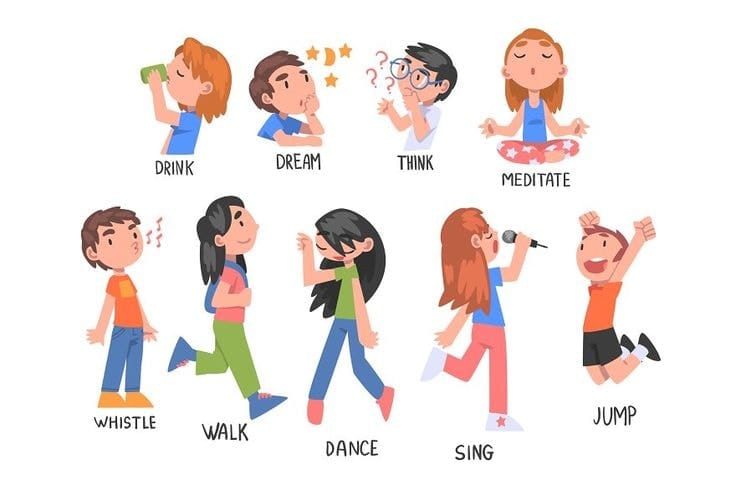
Do – To perform an action.
Make – To create or produce.
Go – To move from one place to another.
Come – To approach or arrive.
Say – To express in words.
Get – To obtain or receive.
Take – To grab or move something.
Give – To offer or transfer.
Know – To understand or be aware of.
Think – To use the mind to consider something.
Everyday Nouns:
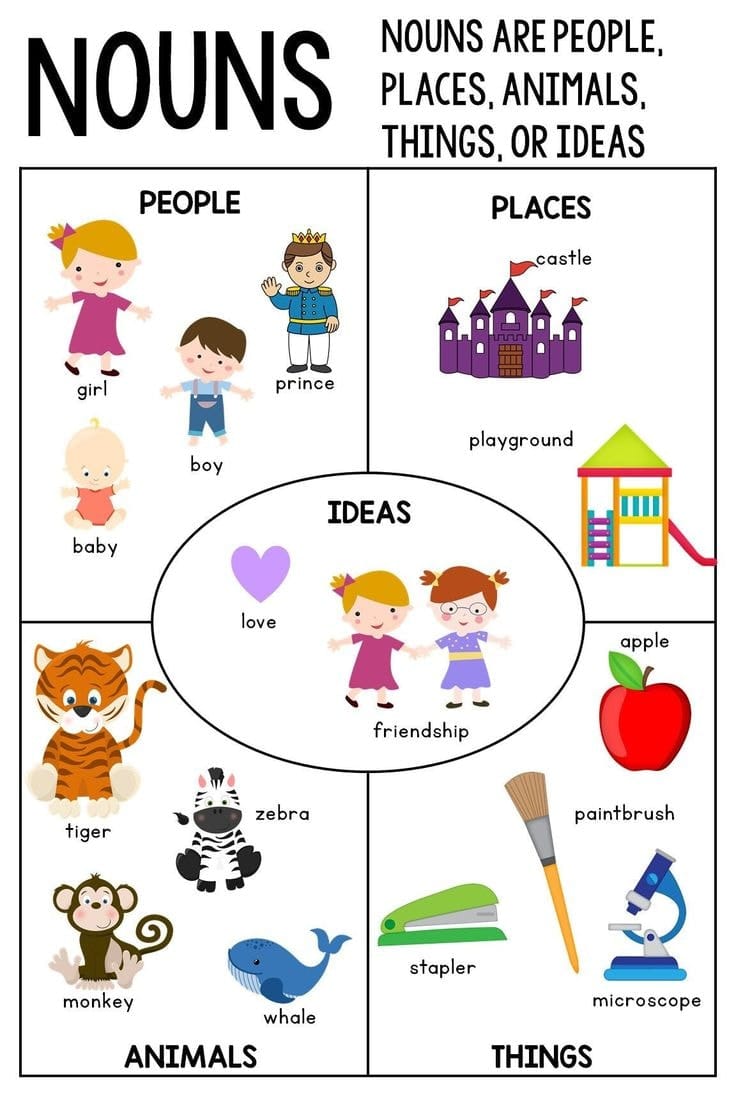
House – A building for living in.
Food – Something that is eaten.
Water – A liquid essential for life.
Time – A measurable period.
Day – 24 hours.
Night – The period of darkness after sunset.
Friend – Someone you have a close relationship with.
Work – Tasks or responsibilities.
School – A place for learning.
Car – A vehicle.
Descriptive Words (Adjectives):
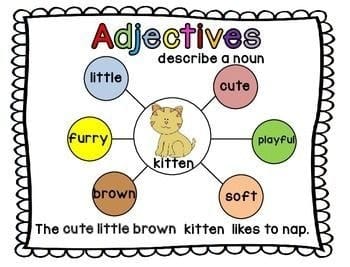
Good – Something positive or favourable.
Bad – Something negative or unfavourable.
Big – Large in size or amount.
Small – Little in size or amount.
Happy – Feeling joy or contentment.
Sad – Feeling sorrow or unhappiness.
New – Recently made or discovered.
Old – Having existed for a long time.
Hot – Having a high temperature.
Cold – Having a low temperature.
Connecting Words (Conjunctions/Prepositions):
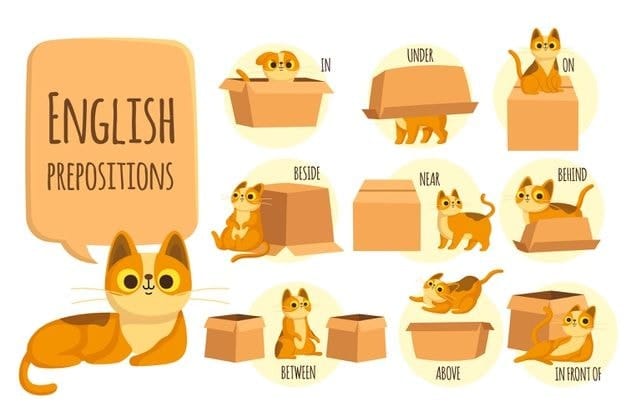
And – Used to connect words or phrases.
But – Indicates contrast or exception.
Or – Presents a choice or alternative.
Because – Gives a reason.
If – Indicates a condition.
In – Refers to location or time.
On – Indicates position on a surface.
At – Refers to a specific location.
With – Indicates accompaniment.
For – Indicates purpose or benefit.
These words are foundational in English and appear frequently in conversations, making them essential for daily communication.
What are the most everyday words used in daily life that beginners should focus on learning first?
Here is a new, more refreshing way of acquiring and concentrating on key daily valid words of English:
Use Phrases Instead of Single Words
Using words in context increases the chances of remembering and using the language. Learners must study high-frequency phrases which contain many daily words naturally.
1. Greetings & Common Phrases
How are you?
What's your name?
Where are you from?
Nice to meet you!
2. Need
I need water.
Can you help me?
I'm looking for the bathroom.
How much does this cost?
3. Actions in General
I'm going home.
Do you want to eat?
Let's go to the park.
I'll call you later.
4. Descriptive Expressions
This is very good.
It's too big/small.
I'm feeling tired.
It looks beautiful.
5. Politeness & Requests
Excuse me, can I ask a question?
Please wait a moment.
Thank you very much!
I’m sorry for being late.
6. Daily Interactions
What time is it?
See you tomorrow.
I'll be there soon.
Let's meet at 5 PM.
Why Phrases?
Saves Time Application: Learners can apply a prefabricated chunk immediately.
Lifelike Usage: It simulates real-life speaking and makes learners use it more fluently.
Unconscious Grammar Intake: The sentence patterns of novices are ingested without awareness.
Encourage the learners to practice pronouncing and using phrases in their daily activities. Adding visual prompts- for instance, linking I need water with an image of a water bottle- makes the learning so practical and fun!
How can I improve my child's vocabulary with the common English words used in day to day life?
Learning everyday words is very important for beginners to learn because it will be helpful for them in communicating effectively with the peers and around. Learning everyday words also assists in a healthy conversation. Following is the list of words one should learn:
People: Mom, Dad, Friend, Teacher
Actions: Eat, Play, Sleep, Run
Objects: Book, Toy, Ball, Bed
Places: Home, School, Park
Feelings: Happy, Sad, Excited
Food: Water, Milk, Bread, Apple
Numbers & Colors: One, Two, Red, Blue
Politeness (Gestures) : Hello, Please, Thank You
Exactly: Precisely or accurately.
Examination: A detailed inspection or study; a test of knowledge or ability.
Examine: To inspect or study something carefully.
Example: A representative part or instance used to illustrate or explain.
Interesting: Holding or catching attention; engaging.
Internal: Existing or situated within something.
International: Involving two or more countries; global.
Internet: A global system of interconnected computer networks.
Evidence: Information or facts that support a belief or argument.
Evolution: The gradual development or change of something over time.
Evolve: To develop gradually, often into a more advanced state.
Exact: Fully correct or precise.
Completely: In every way; entirely.
Complex: Consisting of many connected parts; complicated.
Complicated: Difficult to understand due to multiple parts or elements.
Component: A part or element of a larger whole.
Prescription: A written order for medicine or treatment from a doctor.
Presence: The state of being present or existing in a place.
Present: Existing or occurring now; a gift; to show or offer.
Presentation: A display or demonstration of a topic or idea.
Position: A place, location, or stance; a job or role.
Positive: Optimistic, good, or confident; having a beneficial effect.
Possess: To own or have something.
Possibility: A chance that something may happen or be true.
Joint: A point where two parts are connected; shared by two or more people.
Joke: Something said or done to cause laughter.
Journal: A daily record of events or thoughts; a publication with articles.
Journalist: A person who writes for newspapers, magazines, or news outlets.
They: A pronoun referring to two or more people or things.
Thick: Having a large distance between opposite sides; dense.
Thin: Having a small distance between opposite sides; not thick.
Thing: An object, idea, or matter.
Dark: Lacking light; not bright or clear.
Darkness: The absence of light.
Data: Facts or information used for analysis or reference.
Date: A particular day; a romantic meeting; a type of fruit.
Teacher: A person who teaches or educates others.
Teaching: The act or profession of educating others.
Team: A group of people working together for a common purpose.
Breath: The air taken in or expelled from the lungs.
Breathe: To take air into the lungs and release it.
Brick: A rectangular block used in building structures.
Bridge: A structure built to span a gap and provide passage.
Awful: Very bad or unpleasant.
Baby: A very young child or infant.
Back: The rear part of something; to support; to return.
Background: The area or scenery behind the main subject; a person’s experience.
Independence: The state of being free from control or influence.
Independent: Free from external control; self-reliant.
Index: A list or guide, often alphabetized, in a book or database.
Indian: Relating to India or its people.
Skin: The outer covering of the body.
Sky: The atmosphere or expanse above the earth.
Slave: A person legally owned by another and forced to work.
Sleep: A state of rest during which the body recovers.
Preference: A greater liking for one option over others.
Pregnancy: The condition of carrying a developing fetus in the womb.
Pregnant: Having a baby developing inside the womb.
Preparation: The act of getting ready for something.
Homeless: Without a home or permanent place to live.
Honest: Truthful and trustworthy.
Honey: A sweet substance made by bees from nectar.
Honor: High respect or esteem.
Apartment: A set of rooms forming a residence.
Apparent: Clearly visible or understood; obvious.
Apparently: As far as one knows; seemingly.
Appeal: A request for help or support; to attract interest.
Bible: The holy book of Christianity.
Big: Large in size or importance.
Bike: A bicycle or motorcycle.
Bill: A written statement of charges or a proposed law.
Maintain: To keep something in good condition or continue something.
Maintenance: The act of keeping something in good condition.
Major: Very important; greater in size or importance.
Majority: The greater number or part of something.
Physical: Relating to the body or material things.
Physically: In a manner relating to the body.
Physician: A medical doctor.
Piano: A large musical instrument with a keyboard.
Huge: Extremely large or big.
Human: Relating to people; a person.
Humor: The quality of being funny or amusing.
Deep: Extending far below the surface.
Deeply: To a great depth or degree.
Deer: A graceful animal with antlers.
Defeat: To win against someone in a contest or conflict.
Myself: Referring to the speaker personally.
Mystery: Something that is not understood or explained.
Myth: A traditional story, often involving supernatural events.
Analysis: A detailed examination of something.
Analyst: A person who examines or studies something in detail.
Analyze: To examine something carefully in detail.
Ancient: Very old or from a long time ago.
Education: The process of learning or teaching.
Educational: Related to education.
Educator: A teacher or someone involved in education.
Effect: A result or impact of something.
Different: Not the same as another.
Differently: In a way that is not the same.
Difficult: Not easy; requiring effort.
Difficulty: A problem or struggle.
Working: Engaged in a job or activity.
Works: Things created or accomplished; tasks.
Workshop: A place for making or repairing things; a training session.
World: The earth and its inhabitants.
Answer: A response to a question.
Anticipate: To expect or prepare for something.
Anxiety: A feeling of worry or nervousness.
Shower: A device or act of washing with water; brief rain.
Shrug: To raise and lower shoulders, usually indicating indifference.
Shut: To close something.
Sick: Ill or unwell.
Disaster: A sudden event causing great harm or damage.
Discipline: Training to follow rules or improve skills.
Discourse: Written or spoken communication.
Universal: Involving everyone or everything.
Universe: All existing matter and space; the cosmos.
University: An institution of higher education.
Dining: Eating a meal.
Dinner: The main meal of the day.
Direct: To guide or control; straightforward.
Direction: The path something moves or points.
Key: A tool to open locks; crucial or important.
Kick: To strike with the foot.
Kid: A child or young goat.
Nerve: A fiber transmitting signals in the body; bravery.
Nervous: Feeling anxious or uneasy.
Net: A fabric made of string or a system of connections.
Network: A system of interconnected people or devices.
Exposure: The act of being exposed to something.
Express: To convey a thought or feeling.
Expression: A phrase or way of showing emotions or ideas.
Military: Relating to soldiers or armed forces.
Milk: A white liquid produced by mammals for nourishment.
Million: The number 1,000,000.
Mind: The part of a person that thinks and feels.
Historic: Having great importance in history.
Comments
Your comment has been submitted